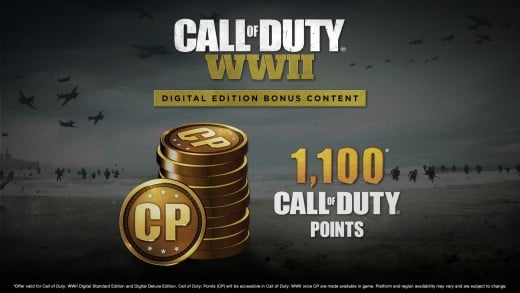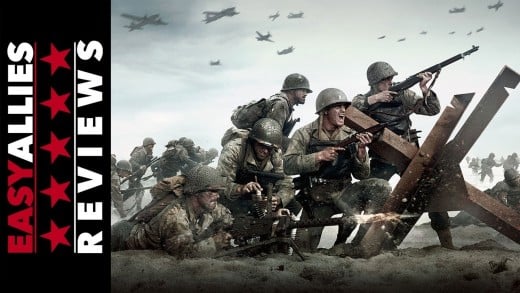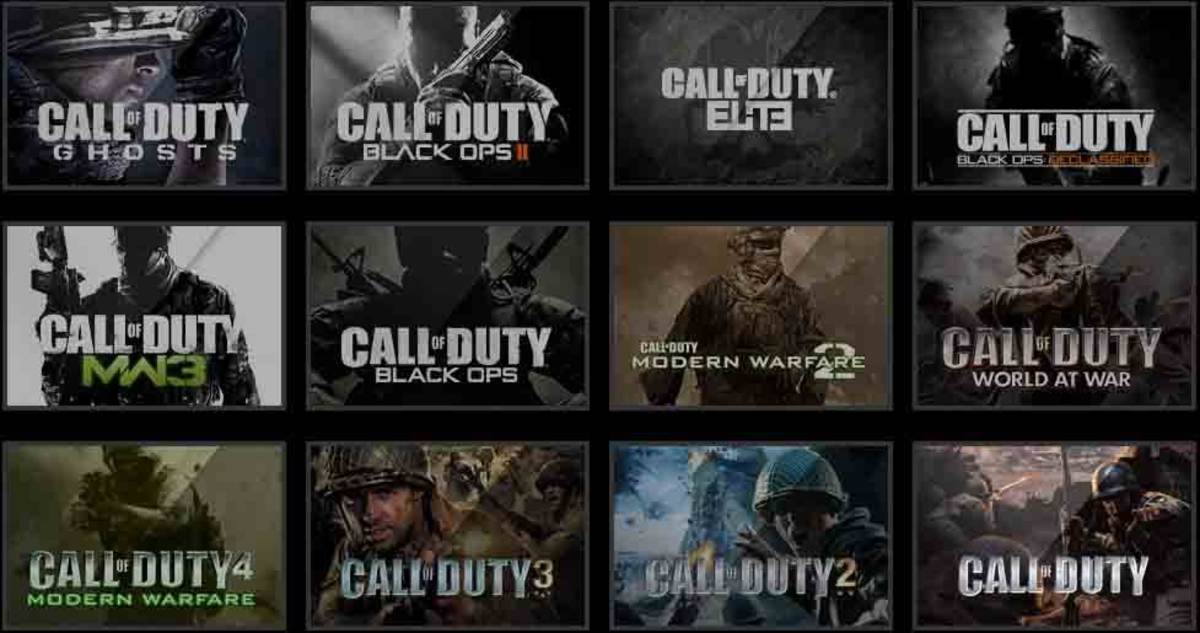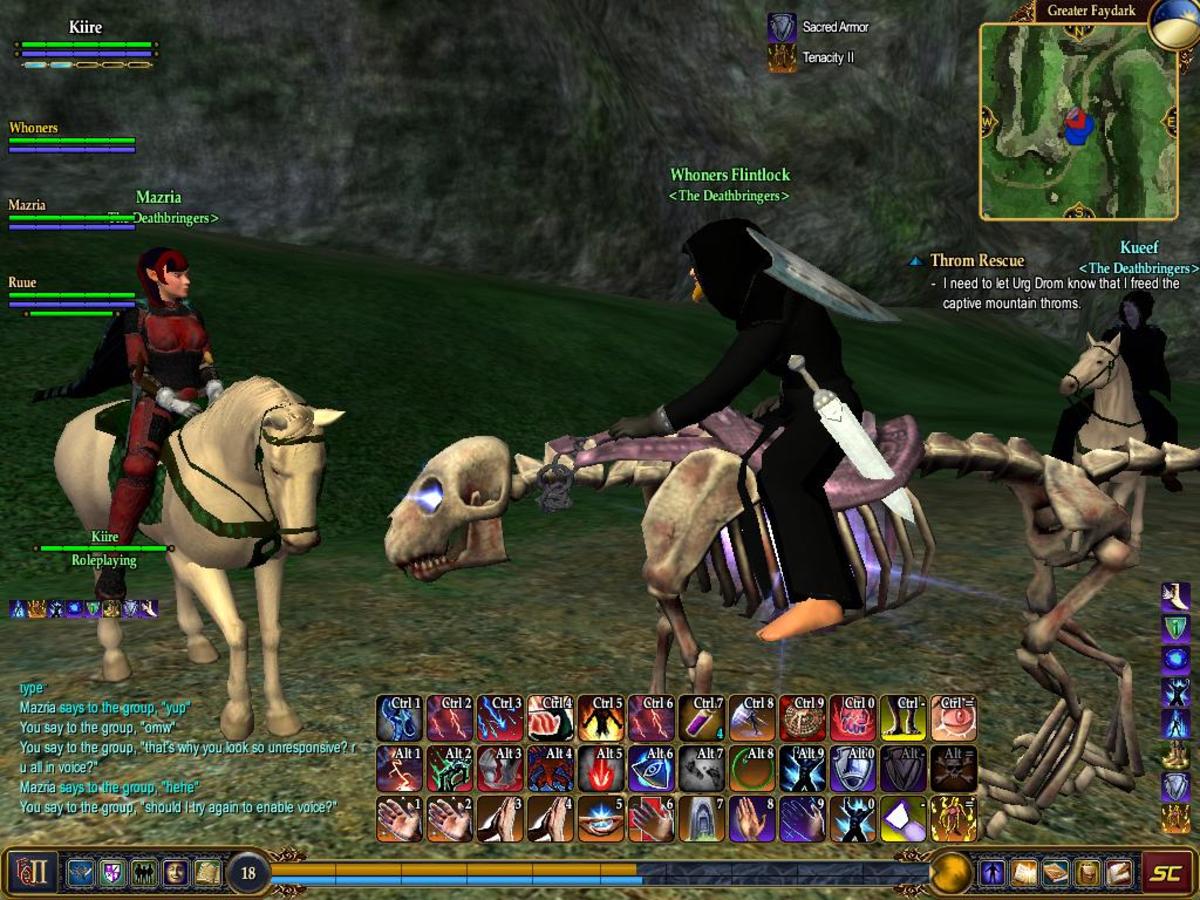- HubPages»
- Games, Toys, and Hobbies»
- Computer & Video Games»
- Online Video Games
Video Games and Micro-Transactions: The Butt-Hole Of the Gaming Industry

Video-Game Industry Exposes the Dark Side of the Moon (A Fact, If the Video-Game Industry Was In-Fact Depicted As the Moon)
Video-games have always been a catastrophe, even going as far back as arcade gaming, with such titles as Alien Invader, Donkey Kong and Pac-Man, games which in their hey-day were seen as a poor waste of time, overly consumed by young people, and essentially, became an addition for the very young... sound familiar, as yep, even in 2018, the video-games of today (multiplayer, online, and such) are seen to do the exact same thing, forcibly robbing young people of their childhood.
Video-games are violent, video-games are a waste of well-earned money, video-games are a waste of time, and don't video-games kill our brain cells if we play them for more than 30 minutes at a time. Hey, watch out over there, as playing Doodle Jump on the original iPhone, with its poor screen quality, and poor tech design, and such, will cause potential brain damage if the content is consumed (in playtime, that is) for more than 15 minutes, now bear in mind, this is a smaller gaming screen, so brain damage will occur much quicker (given that the user is directly eye-to-screen with the game), than say, it would playing on a living area television screen.
Where's my evidence, eh? Well, there's a guy approximately 100 metres to your left, or perhaps 1000 metres to your left who's currently rocking out on Call of Duty: WW2 multiplayer, and has just received his chrome camo for unlocking all gold camos for each and every weapon in the games multiplayer (congrats, by the way dude... who's between 100 to 1000 metres to the left of this most fortunate reader), and you're sat reading the internet (sure, a person can read the internet, but don't hold me to that), and by that calculation (*thanks god the "chrome camo guy" can't read this) you're the smarter individual.
But, enough of this bull-crockery, as the video-games industry is up to much worse, much dirtier deeds that need to be highlighted, here in this post today. We've guessed it, and that is the violence that playing video-games causes, as we are in serious threat if a person is playing Grand Theft Auto 5 in the adjacent, side-adjacent (*that's right, it's a word), other side-adjacent (*still a word) room, as these people may be practising their beat-down skills by punching old ladies as they walk their cute little Papillon's home from the groceries, and the next beat-down will likely be you, the person feeling a victim - after just hearing a car crash into a gas station on a television screen that feels fairly close to your space, as that is near-certain sign that there is an aggressive gamer lurking near and close.
All aside, video-games can cause violent behaviours in adolescents, especially the ones who sit around all day playing Grand Theft Auto Online with their buds they call home-diddly-doblins, or something else that makes more sense. These people, regardless of their time played (in-game, and/or per gaming session), are likely to become aggressive if their player dies, but this is an issue that quickly gets out of hand when playing in party-chat with friends, but again, this is only referring to adolescents (the young people that are perhaps below the recommended age - probably 18).
It's true, most violence accusations where a person has become violent centred around a video-game, is ultimately usually the case where an adolescent has been playing Grand Theft Auto, and the rage induced gaming session has led to altercations with a person in game chat, but at the end of the day, it is the physical people around these telephone-style encounters that suffer the aggression of the gamer - literally, we are talking about a video-game, something which is all about the virtual crap, and the virtual can-dos, and the virtual can-not-dos.

The Real Virtual Quarrel That We Are Addressing Here In This Post Today Is Aiming At the In-Game Marketable Micro-Transactions in Mainstream Video-Games, in 201
We can talk about video-games causing violence any-day, every day, and for the rest of our lives (*actual lives, to be point-on specific), and still find that there is no viable, feasible, drastic measure that can resolve this most potent bureaucratic bull-smoke-mara-we-ja-crockery nonsense, as the more we fight the problem - the more the problem fights back.
Violence will always be a part of video-games in mainstream action, as there is just something all-so satisfying about killing that virtual-dude who just darned virtual-killed me, and let's be straight here, the virtual revenge is always a satisfying virtual job well done. But, violence in video-games will have to take a back-seat, as micro-transactions take top place for the darker business practices in todays volatile online gaming marketplace.
Violence in video-games sells, just as micro-transactions sell more in video-games, becoming a big debate in late 2017 - now early 2018, for as to whether or not they can be considered gambling. Spend real money, roll the dice, and see what the luck-gods have given us for our most sweetest of surprises, and what we get - is what we get, and there are no back-sees, so even if what we got wasn't what we wanted to get, it's tough luck kid, as that poorly spent money is gone, and we mean MCHammer gone, not just regular old gone.
So, on that note, micro-transactions in mainstream video-games are almost certainly a form of gambling, because if a legal-of-age gambler (say, for instance, age 21) was to walk into a betting shop and spend £70 ($85) on a slot machine, and no matter what he gets back from his gambled investment, this was in fact a form of gambling. Something that has legal age requirements in a betting shop, should ultimately have age restrictions on video-games, especially when the developers of these video-games dress these micro-transactions to look like fluffy-coated cotton-candy, when really they're only means is to access unique, luxurious-feeling virtual crap.
The 21 year old betting away the £70 in a betting shop at the very least has a change of winning back some of his money, whereas the 13 year old who just bought £70 worth of micro-transactions supply drops (*yep, Call of Duty call their micro-transactions supply drops) on Call of Duty: WW2 will be waiting a long time to get a return on their investment, and since this is virtual time that benefits no additional gaming content, this time will ultimately never be fulfilled, thusly, meaning a 13 year old would have better luck giving their £70 (probably from mothers credit card) to an older brother who is say, for instance, 21, and have them bet all the money on slot machines in a betting shop.
Seriously, what has the world come to when we knowingly allow young, fragile, easily manipulated minds access a form of betting before they have even graduated from high-school, assuming they ever make it this far, as the odds on "betters" succeeding in life is relatively slim in chances, something that only spurs on the addiction to keep on gambling.
The most shocking thing about mainstream video-games including micro-transactions in their games is that they market this side heavily on the multiplayer front, essentially the online gaming elements to a popular franchise title, and from a corporate standpoint, this is simply good business opportunities, and from a consumerism standpoint, this is cleverly marketed bull-crockery that simply irritates large communities of older players/gamers/games communities.
Take the most recent Call of Duty title, WW2, a game that is heavily populated on its multiplayer front, with something like 15 million total players on platform leaderboards across the board, and wanna guess how many of these players are between the ages of 10 and 16, as we really wouldn't have a clue for as to how many, but we can only imagine its a damned large amount of quantity of current online, multiplayer gamers.
In CoD: WW2, online, there is multiplayer, and inside multiplayer there is all of the inclusive stuff that comes in the form of character uniforms, helmets, calling cards, emblems, weapon camos, weapon variants, etc, and all of these things (apart from the weapon camos) can be earned through supply drops, all of which can be earned organically by playing multiplayer matches in-game, and even more supply drops can be earned by ranking up (earning 1 supply drop every 5 ranks), and by collecting and completing orders and contracts which can be found in the multiplayer social space, the HQ (headquarters social space - a third person lobby to catch-up with friends, collect items, collect daily mail, open supply drops, prestige various things, and many other things).
Supply drops are not necessarily the problem, as sure, in itself they can be obtained relatively easily by simply playing multiplayer matches, and for the best part players will always feel rewarded by the cosmetic items that they unlock, but this becomes besides the point when realising the games publisher is actually marketing sales of these supply drop things to their key gaming demographic, the young and the financially foolish - some may even go as far as to say, financially incompetent).
Whatever, supply drops can be earned organically and methodically by simply playing the games multiplayer, so what convoluted, manifestation of a reasoning might the games publisher have for adding micro-transactions to the very same game (in multiplayer) that provides them freely in online in-game playtime, we ask. In time, there is a sense of foul play involved, as there is the old saying for, "pay to win", when speaking in terms about the purpose and sole use of micro-transactions in mainstream 'online' video-games, like Call of Duty.
For sure, the developers of the video-games in question, such as Sledgehammer Games for the title, Call of Duty: WWII, will argue their case that the items earned in a supply drop (whether earned through in-game rewards, or through micro-transactions payments) are merely cosmetic, and thusly benefit the player in no way when facing other similarly, or lesser skilled players. That's their answer, nothing more, nothing less.
The point is, whether there is a valid explanation for micro-transactions in a mainstream video-game or not, it is simply about charging premium fees for either game changing virtual crap, or the feel of game changing virtual crap, and that is all there is to it, as anything that could have been earned in-game, may have in fact been bought by an individual who is much younger than the one who earned those items in organic gameplay time in the multiplayer matches. An endless rambling is what this has begun to feel like, but there is no arguing against the facts, as micro-transactions in popular/or not-so popular mainstream video-games is a form of gambling.

Sticking With Call of Duty: WW2, and the Micro-Transactions Gambling Usage for Multiplayer Supply Drop Openings
Oh my Lordy, if we head over to Call of Duty: WW2's multiplayer, there we can enter the ultra-cool HQ social space (*truly, aces!), and here there is so much super-cool fun that we can have on the settling which is the beach of Omaha, a famous foot forward 'location' into winning the war against the German Nazi's, and here, players can kick-back, relax and chill with public matchmaking of 48 players; and we can open supply drops, collect contracts/orders, prestige soldier/division/guns, test weapons at the firing range, test score-streaks down at the actual beach, and even 1v1 people in the pit. Innovation (*the next step forward for online first-person shooter gaming) , or so we're told.
Seriously though, once we're in the HQ social space, and we mean it, the games developers really want us in their Headquarters social, third-person, gaming area, there are supply drops everywhere, as there is normally about 5 or 10 guys in the 48 man public lobby in HQ opening their personal supply drop rewards in front of everybody. Then, there is the supply drop reminder key at the bottom right of the screen, and then there are supply drop icons listing as rewards in the contracts booth, and then over at the orders booth, and it is extremely clear to us all now, and that is that we need to be earning more supply drops.
"Oh shucks, Dan (*the man) can't do any of the orders challenges this week as he really doesn't have the time to complete them, and he's been talking about the micro-transactions shopping area over at the contracts/collections/supply drop (BUY NOW! - all fools walk in) purchase option, and there are supply drops packages that go as high as £84.99 ($115.99), and now, Dan isn't there smartest cookie, so he purchases this package, ultimately thinking he'd unlock all of the weapon variants for when he does have time to sit down and play for some hard-time, but in the end, he earned about the same amount of loot as some of the guys who've just reached prestige 3, level 1."
Unlucky Dan, and you know who you are, as this was a fool-hearted, wishful thinking decision, and wouldn't Dan have been much better off had he known that he was gambling the £$84.99, and not purchasing a sure-thing route to unlocking all of his weapon variants that he'd wanted? We imagine good old Dan would be sitting easy if he'd simply waited till he could sit down for more than a couple of hours one Saturday afternoon to grind some supply drops the good old fashioned way, and not forever hating the game because it feasted on his well earned dimes one silly, unfortunate evening.
Gambling. For the most part, we're not interested, as we truly shouldn't be, as these are the kinds of places where people go to drink away their money, almost as fast as they gambled it away, and these are not the winners in our society. Then, along comes the internet, and suddenly gambling doesn't seem all that bad, as on a computer/laptop/whatever monitor, money is just a number, whereas in a store, money is a sacred piece of paper material, not so easy to part ways with.
Nope, not online gambling casinos, and nope, not online bingo websites, as let's be honest, these places are almost as distasteful to be in as their physical counterparts, the in-store betting shops. Gambling and the internet combined, and suddenly corporations have become wiser to the darker sides of money, as it is very easy to spend small to medium sized amounts of money on the internet, and to never truly care where it is being bounced around to. Has our society gone ludicrously mad with internet spending habits, as the video-game industry is only tapping into this waste cycle of money expenditure, as they've realised that they could be at the other end of the pipe, with customers buying crap at one side, and EA and Activision (corporate game publishers) at the other side.

Activision (Rights-Holder for Call of Duty Franchise) and their Relationship with Supply Drops
Supply drops have been purchasable (through the unmistakable micro-transactions) in Call of Duty multiplayer since 2014's Call of Duty: Advanced Warfare, and to be frank about it, there was a trial-and-error basis for this newly formed business model, and since then, Call of Duty has been on a mission of its own to perfect the supply drop system, having it return once again in 2015's Call of Duty: Black Ops 3, then again in 2016's CoD: Infinite Warfare and CoD: Modern Warfare Remastered, and for its most recent appearance in 2017's Call of Duty: WWII.
In 2018, supply drops in Call of Duty: WW2 are something of a beauty, having them seem like they are hidden nearly in the background to the games online multiplayer features, when in the reality, the entire game has been built around them (*micro-transactions, reassured). Take the newly formed HQ social space area in WW2's multiplayer, a breeding ground for supply drops, and the inevitable supply drop temptations for simply wanting more.
In WW2 HQ, there are all these cleverly designed ways to make the player want more supply drops, from adding them to daily and weekly orders, all of which are regularly flipped, and then there are the unbeatable contracts which can be completed for supply drop rewards, and then, to really get the supply drop juices flowing in the gamers, there are even limited-time events throughout the year (most recently, the "Winter Siege" Christmas event), all bringing forth their own unique supply drops, and supply drop micro-transactions.
Worst problem of all, it has to be the marketable promotion for the micro-transactional supply drops, as YouTube is littered with big-medium-small YouTube channels which dedicate their content to the latest Call of Duty franchise titles, and the one which is in at the moment, WW2, has some of the most seen footage on YouTube. There are YouTube channel hosts unlocking expensive supply drop openings, and granted, the overall consensus on the video-sharing medium platform is that they suck, but it was clearly in Sledgehammer Games (the "WW2" game developer studio) interest to make them desirable, so clearly they failed to some extent, but still a heavily marketed attribute to the game, all the same.
These YouTube channels themselves, which dedicate their content to Call of Duty: WW2, really shouldn't be promoting the micro-transactions, as it offers a way to ultimately result in yet more people wanting to purchase them, because a YouTube channel did it, then clearly they are OK. Honestly, OK, is all most people are looking for, as opening 100 paid for supply drops is going to be a more fun experience than opening maybe a couple every now and then that have been earned in-game, when in the reality of the way it works, these supply drop openings will have 80% trash, 10% passable, and another 10% good items, so really, all a player needs is 10% of the 100 supply drops, which can easily be earned in-game through organic playtime, and with a bit of luck, these players will be richer than the ones that paid for the 100 supply drops.

Activision's Call of Duty: WW2 Makes Supply Drops Look Better When Bought with Real Money, and Not with Natural Multiplayer Progression
Call of Duty: WW2 is the best selling video-game for 2017, and rolling into 2018, it is still the best selling game of this year as well, giving prominence to this games business quarterly activities, and Activision have been profoundly confident that the supply drop system is well-supported by its vast franchise gaming community, and they have the upmost confidence in their developing studios to implement micro-transactions in a family-friendly manner that falls in line with their morals.
As of now, there really are no boundaries put forward by the US or UK governments for regulating the micro-transactions field within mainstream video-games, and as such, there is no determining what might be perceived as right when it comes down to corporate morals for games publishers like Activision and EA, both of which own the rights to games franchises which proudly use micro-transactions as part of their business models.
That means, Activision can order their game developer studios to create the franchise games that they respectively make, and have them include family-friendly censored micro-transactions, such as with the purchasable reward of supply drops in Call of Duty: WW2, and stamp a price on it, and sell them with repeat business as many times as humanly possible. That's right, there is not a whole lot of love for the supply drops in WW2, but they are without a doubt there, and they prey on the foolish, the stupid, the vulnerable, and the overly competitive. This usually means, an unprecedented level of repeat business from the same people.
The natural progression in WW2 multiplayer is best known as the grind, as it takes a fair amount of hours, days, and weeks playing the game to get through the relentless ranks, and one of the biggest rewards in the games multiplayer features is the supply drops, and it may simply be the games flawless graphics design, but it almost seems too tempting to gander over at the supply drops for purchase area.
Experiences Earning, Using, and Acquiring Supply Drop In Call of Duty: WWII Multiplayer
Supply drops can be earned in-game within WW2's multiplayer, so Activision, the games publisher, are in the clear from the publics eye, as it is very clear that these micro-transactions options, in actually paying for large quantities of multiplayer in-game supply drops, can be ignored, and gamers can instead simply spend tens of hours grinding the games multiplayer to earn these supply drops organically, making them almost native to the game itself, and not some sly add-on that will trick unexpected online players into paying for these drops.
Supply drops to the unknown WW2 (CoD, 2017) player, may simply mean nothing to them if they have not entered onto the games multiplayer service, but something that is a carbon copy of the supply drops (micro-transactions) in WW2's multiplayer is the popular smartphone app game, Clash of Clans, a freemium app game, that uses micro-transactions in an equally consumer-friendly-promotional manner, and what Clash of Clans gamers earn are gems, and these can be used to build, upgrade, and acquire new items for their village. Sure, in Clash of Clans the gems can be earned in-game, so quite clearly only the foolish and the plain stupid would pay £$79.99 for a pile of these gems, but this has been proven otherwise, as according to research the system is almost like gambling, meaning there is side action to the game that once started, can become endlessly addictive.
What games developers are trying to achieve with micro-transactions, is a source of income that can be more profitable than the normal game sales themselves, as the addict-gambler gamers who pay for these micro-transactions (be it gems in Clash of Clans, or supply drops in Call of Duty: WW2) will pave the way for more who will do the exact same, and fall into an addictive, gambling problem on a video-game, and it is always the most popular video-games that include these micro-transactions that make the most profit, as we could all only imagine.
Sure, there are those who dispute claims of games developers making vast sums of money from micro-transactions, but to crush these claims flat in the mud, in 2016 alone, the developers for Clash of Clans made $2.6 billion dollars from the app game franchise, and we imagine hundreds of millions of dollars from this pile would have equated from micro-transactions purchases from in-game gameplay experiences.
Micro-transactions have spread like a viral disease, no longer simply inhabiting freemium app games on the iPhone and Android services, as they have now moved their way past the larger pond and into mainstream console video-games, just like Call of Duty: WW2, in which we have chosen to make the most hatred of points excruciatingly clear, in that micro-transactions do not prey on the smart, the average games players, but rather the vulnerable, the very young, and the stupidest of fools.
Just like the micro-transactions in famous Apple/Android app games like Clash of Clans, in Call of Duty: WW2, the micro-transactions are dressed in white, with yet more colourful loot boxes, equally similar to the media outraged loot boxes in EA's Star Wars: Battlefront II, looking shiny and tastefully designed. As with Clash of Clans, micro-transactions are simply an option in Call of Duty: WW2, but given they are very easily accessible in the multiplayer social space, over at the HQ, there will always be a lingering temptation in this so-called social hub space, to desire the bundle purchases for supply drops, and for the most part, none of us WW2 online gamers are ever going to spend a single dime/penny/cent on these trash-box packages, but that doesn't mean there aren't those who will, and are vulnerable to becoming an addict.
Really, an addict? Most certainly, as there is always a feeling of lust for life when addicted gamblers gamble, as they receive a form of dopamine high, and the only way to get back this high experience would be to buy more supply drops, and to 90% of the gamers on WW2 multiplayer, we only ever see the micro-transactions shopping area as a waste of time, and an indefinite waste of money. We mean, really, where is all that hard-earned money going when someone buys into the micro-transactions, as we're almost 100% sure that this money skips past the games developers, and goes straight into the pockets of the Activision corporation shareholders.
Seriously, a mainstream gaming title like Call of Duty: WW2, stooping down to the levels of a dodgy practice app game business model for making some extra money is pure and simply criminal. On initial launch, WW2 (CoD, 2017) sold for £50, and by thanksgiving in North America this figure slipped down to £40, and to most people that is a lot of money. Then, there is the 'Season Pass', which has a price tag of £39.99, giving free access to all 4 DLC packs which release for WW2 online over the coming year (the games overall life-cycle), a figure that roughly works out at £10 per DLC pack release in WW2's multiplayer, adding more content, each and every time.
Nope, that is fair play, as the games developers have made all of this additional multiplayer content to keep the game fresh and appealing to long-standing consumers throughout WW2's one-year life-cycle, and DLC packs in video-games is a positive business practice, as we all know what we are getting before we spend our money, and everything we receive, and what we paid, is all fair game. However, micro-transactions for supply drops in WW2 is not fair game, as if we wanted to take the full advantages of the WW2 title throughout the year, then we would spend an additional £40 (on top of the base games retail price - at its highest, a cost of £50), making the full sum for complete gaming enjoyments and fulfilment, a round-out cost of £90, overall.
On top of this £90, per committed WW2 online gamer, Activision (the games publisher, and the essential boss for the WW2 development studio, Sledgehammer Games) are asking that we part yet more money to have the ultimate online gaming experience by purchasing the supply drops through easy-to-use micro-transactions, and the biggest available micro-transactions package costs £$84.99, and in turn, the games user will receive 13,000 CP's (Cod-Points), which rounds out to around 100 rare supply drop openings, all of which are entirely optional, as these drops can all be earned, and much more, from simply playing the games multiplayer for tens of hours.
Basically, if we've got the time to invest time into the WW2 multiplayer, then we can all get our supply drops for free (in-game), and for those without the time to invest, and the available money in the back pocket, there is the alternate option to spend big bucks on purchasing the supply drops, and in turn, in hopes, receive all of the goodies hidden within these loot boxes that a committed gamer may have earned through pure grinding time.
In fairness, all of the items that can be earned in a supply drop in WW2 multiplayer are cosmetic only, but they do effect the games online progressional feel, and since a feeling of progressional advantages cannot be proven in any way, shape or form, essentially Activision are in the clear, from a media standpoint, as everything that can be earned through micro-transactions supply drops is merely made to look good, and better than the base items that will already be obtained from an uncommitted online players perspective.
Edit: We need more perspectives, more outcries, and perhaps as a result, an eradication of unethical, unmoral business practices in the gaming industry, starting with the large games publisher corporations and their infatuations with micro-transactions in their highly profitable franchise titles.
© 2018 Dreammore






